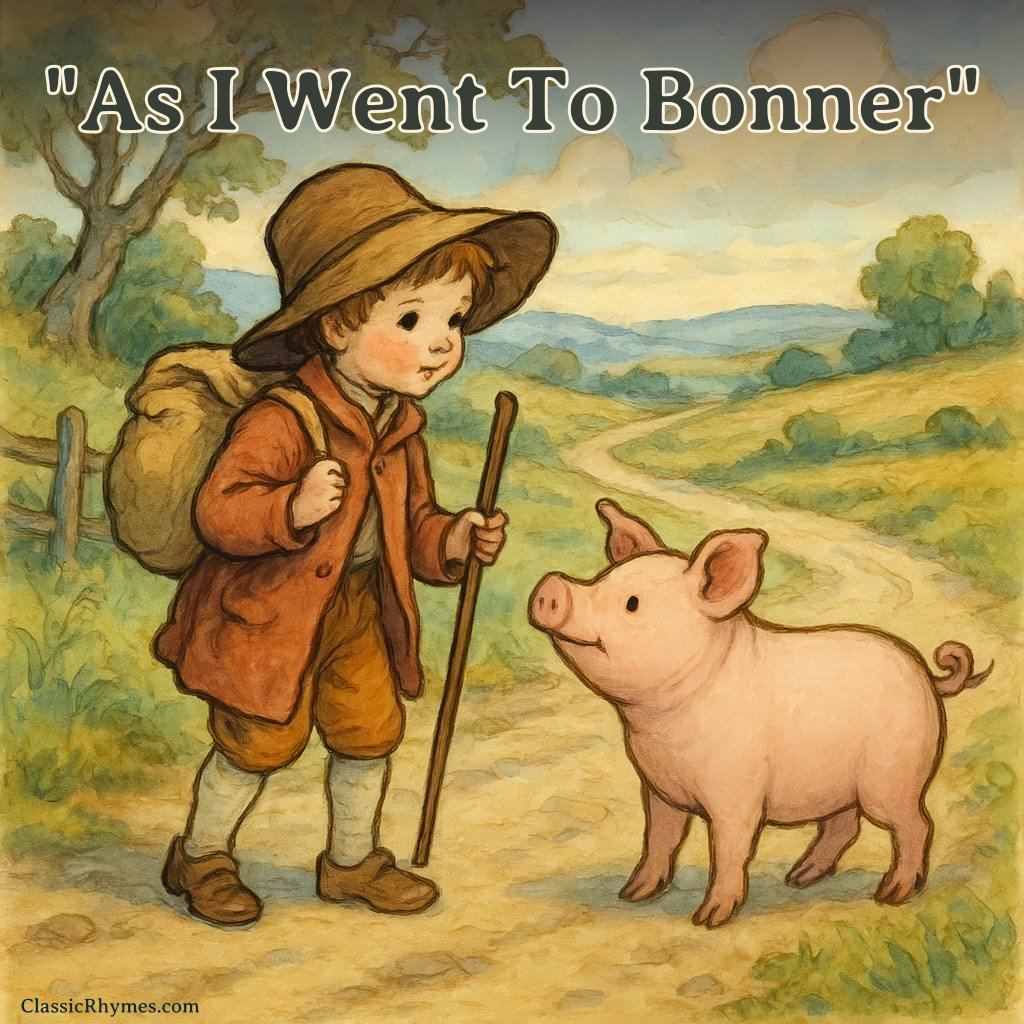As I Went To Bonner
While “As I Went To Bonner” is a whimsical and nonsensical nursery rhyme, it amuses with its absurd imagery of encountering a pig without a wig during travels. Here we will explore the meaning, origins, and cultural significance of this playful and lighthearted classic.
As I went to Bonner,
I met a pig
Without a wig,
Upon my word and honor.
Print or Save This Rhyme
Download PDFRecitals
Listen as male British:
Listen as female American:
Listen as told in a story:
What is the Meaning of the ‘As I Went To Bonner’ Nursery Rhyme?
This is a brief, whimsical nursery rhyme that plays with absurd imagery: meeting a pig “without a wig” on the way to Bonner (sometimes spelled Boner or Bonar in variant texts). The rhyme is nonsensical and lighthearted, meant to amuse children with its playful sound and impossible situation. The phrase “upon my word and honor” adds a mock-serious tone, as if affirming the unlikely tale, which enhances its humor.
History and Origin of the Rhyme
First printed in 19th-century English nursery rhyme collections, “Bonner” may reference a place, though it’s most often used simply for the rhyme. The playful structure and comical animal motif are common to many Mother Goose rhymes.
Time Period
Found in Victorian-era and early 20th-century anthologies, including “The Real Mother Goose” (1916) and “The Little Mother Goose” (1912).
Historical or Cultural Notes
Often found alongside similar short animal rhymes in classic English nursery collections; part of a tradition of whimsical, brief storytelling rhymes for children.
Why It Became Popular
Its silly, memorable lines and animal themes made it appealing for young children and a favorite in read-aloud sessions. The rhyme’s brevity also makes it easy to memorize and recite.
Notable Variants
Some versions begin with “Upon my word and honor, as I went to Bonner,” and the spelling of “Bonner” varies across editions.
Structure, Style, and Themes
Structure and Style
- Meter: Regular, short rhyme
- Rhyme Scheme: ABCB or AABA
- Line Count: Four lines
- Style Notes: Nonsense rhyme, narrative
Themes
- Absurdity and humor
- Animals
- Imaginative travel
Language Notes
Simple vocabulary, playful structure, and use of mild exaggeration (“without a wig,” “upon my word and honor”) create a mock-serious tone.
Moral or Lesson
No explicit moral; the rhyme celebrates whimsy and wordplay for their own sake.

